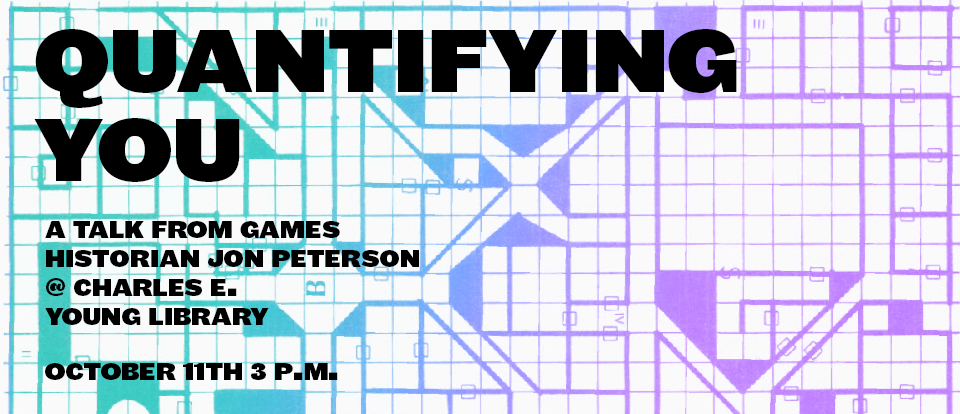
Jon Peterson: Quantifying You
Game historian Jon Peterson discusses quantifying personal attributes and the imagination of players in role-playing games.
LINKS AND DOWNLOADS
WHEN
Tuesday, October 11, 20163:00 p.m. - 5:00 p.m.
LOCATION
Main Conference Room (11360) at the Charles E. Young Research LibraryRole-playing games like Dungeons & Dragons resulted from the application of the principles of conflict simulation to fantastic literature. These two cultures, a games culture and a story culture, competed to define role-playing games in their infancy. Was a character in a role-playing game the sum of its quantified characteristics, or was it a literary or theatrical quality, or something else? Games historian Jon Peterson explores what the “role-playing” in “role-playing games” meant to the earliest practitioners, and how the tension between quantifying personal attributes and deferring them to the imagination of players informed the early evolution of these games as they began to migrate from the tabletop to the computer.
Jon Peterson is widely recognized as an authority on the history of games. His first book Playing at the World: A History of Simulating Wars, People and Fantastic Adventures, from Chess to Role-Playing Games (Unreason Press, 2012) revolutionized games scholarship with its rigorous source-driven methodology. Frank Lantz, Director of NYU’s Game Labs, called Playing at the World “the best book that’s ever been written about one game.” The Village Voice called it “the first serious history of the development of Dungeons & Dragons.” It is frequently taught at a university level, and Jon often lectures on games history at universities, conferences, and conventions. He has contributed to academic anthologies on games including MIT Press’s Zones of Control (2016) and the forthcoming Routledge book Role-playing Game Studies: Transmedia Foundations. Jon also writes for various games and geek culture web sites, including BoingBoing, the Escapist, and Gamasutra, as well as maintaining his own blog.
